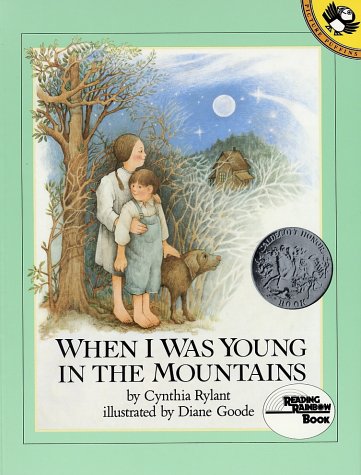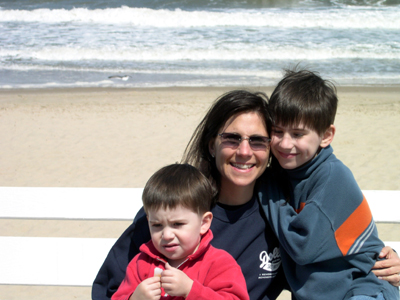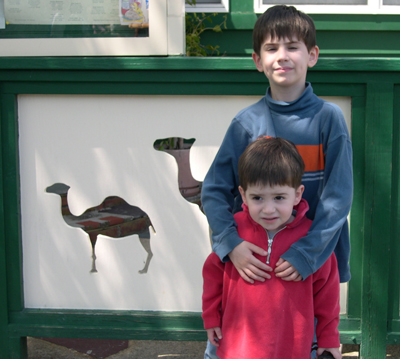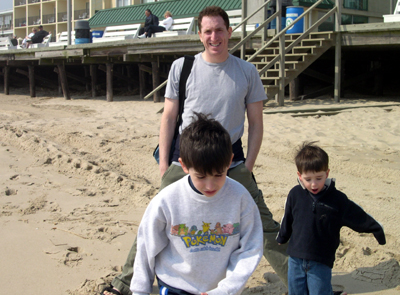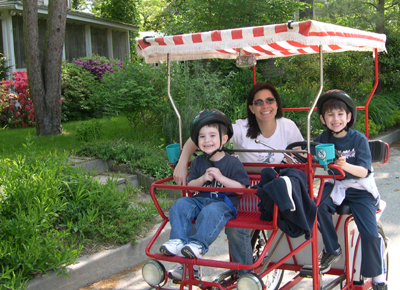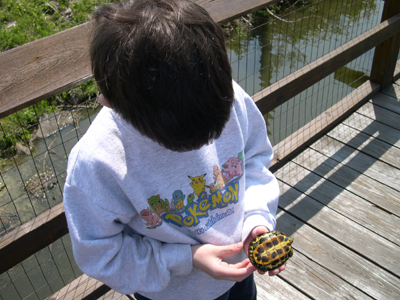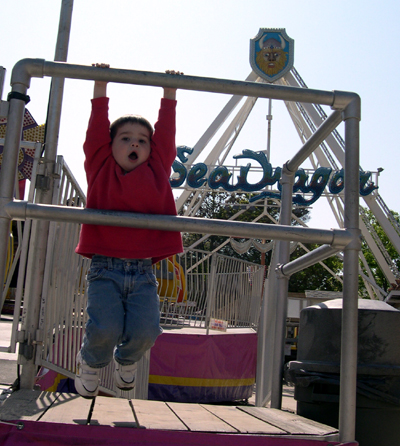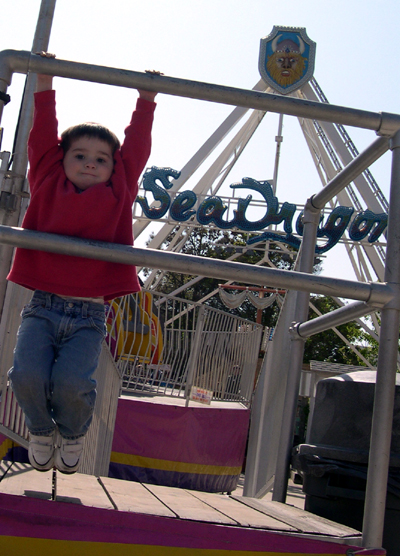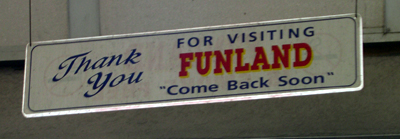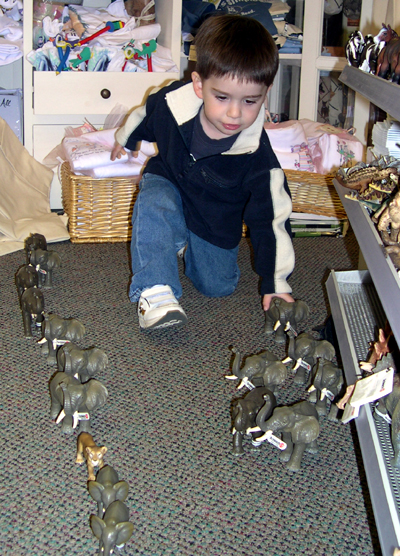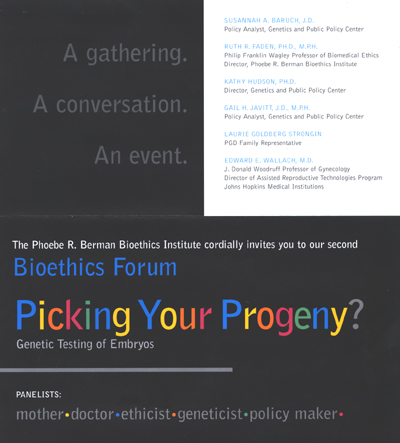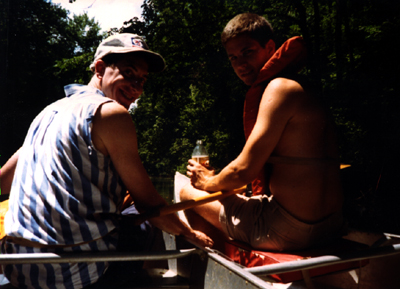
 Technology customizes kids by sex
Technology customizes kids by sex
Choice: A technique to identify healthy embryos for implantation can also be used to select gender.
By Julie Bell
Sun Staff
May 10, 2004
Darra and David Williams were running out of hope for having a baby without cystic fibrosis when they heard about technology capable of helping them select healthy embryos - as well as their child's gender.
At an Irvine, Calif., clinic, now-familiar technology was used to fertilize her eggs with his sperm. But in a Brave New World twist, doctors at Coastal Fertility Medical Center then pulled a cell from each resulting embryo to test it for defects such as the cystic fibrosis that runs in David's family, as well as for its sex. Four were healthy - three boys and a girl.
"We had one goal in mind, and that was to have a healthy baby," Darra said, and the couple decided to put all four healthy embryos in her womb. Twin boys resulted.
The Williams' clinic doesn't allow parents to use the process - pre-implantation genetic diagnosis, or PGD - solely for sex selection. But a small but increasing number of clinics and parents are making a different decision, employing technology once used exclusively to avoid disease to select the sex of their babies. In the process, they're rejecting embryos considered undesirable because of their sex.
It is only a matter of time, experts say, before PGD can be used to select embryos for other characteristics parents desire in their children, such as eye color or athletic prowess. Already, some have used PGD to choose embryos that are immune-system compatible with a sick son or daughter, thereby custom creating a child to provide a transplant for a sibling already born.
Last week, Chicago researchers published a study in the Journal of the American Medical Association showing that PGD had been used by five couples to make a baby that was a match for an older sibling in need of a stem-cell transplant.
For many, it's morally permissible to select for a child that will save the life of another, or to avoid the birth of a baby destined to suffer a slow, agonizing death from a childhood disease such as the nervous-system destroyer Tay-Sachs. Reproductive rights are the purview of doctors and patients, they say, and a matter of choice.
Besides, they point out, PGD enables parents to select embryos before they're put in the womb, avoiding what many consider a more wrenching decision - whether to have an abortion if prenatal tests show a fetus has a genetic disorder.
But for others, the trend puts America on a perilous path, one in which custom-kid technology available only to those who can afford its $12,000 to $15,000 price could change the way society values the disabled or warp our view of the worth and purpose of a child.
"We are already sliding down a slope," said Amy Laura Hall, an assistant professor of theological ethics at Duke University. "With selective reproductive technologies, parents and society are involved in a kind of negative eugenics."
Adding to critics' concerns is the fact that this latest evolution of test-tube baby technology is happening in the largely unregulated U.S. fertility industry. It's also becoming increasingly popular, even though there have been few studies looking at whether removing one cell of an embryo might damage the remaining cells and, ultimately, the child.
Nationwide, 40,687 infants were born in 2001 using all kinds of assisted reproductive technology, according to the most recent federal data. In contrast, about 1,000 babies have been born worldwide using PGD since the first clinics began using it in humans, the Washington-based Genetics & Public Policy Center estimates.
There's no question the pace of those births is quickening.
In Great Britain, the government regulates when PGD can be used. Without such regulation in the United States, some doctors look to the American Society for Reproductive Medicine for guidance. But the society hasn't taken a position on screening embryos for tissue type. It supports screening to prevent disease or to "balance" the sex makeup of a family after the birth of a first child.
The bottom line: In the United States, doctors and patients decide when to use PGD.
Fertility centers associated with the University of Maryland, the Johns Hopkins University and the Greater Baltimore Medical Center don't allow the process to be used solely for sex selection. Nor does a PGD lab affiliated with Shady Grove Fertility Center in Rockville.
"The last time I checked, sex was not a disease," said Dr. William G. Kearns, Shady Grove's PGD director, explaining why gender selection isn't allowed unless it's associated with the propensity for a disease.
But in Houston, Dr. Joe Leigh Simpson of Baylor College of Medicine said he's considering asking an ethics board there to consider a study in which families that have a child could use PGD to select the opposite sex for a subsequent child.
In the Denver area, Conceptions Women's Health and Fertility Specialists began offering PGD for family balancing after a couple with three boys came in and asked whether it would.
Fairfax, Va.-based Genetics & IVF Institute allows families to use PGD for family balancing, as well. It even offers an alternative, experimental method of sex selection that separates larger X-carrying sperm from smaller Y-carrying sperm, allowing families to fertilize eggs with sperm that will result in the desired sex. The method, now in clinical trials, avoids the issue of discarding embryos that are the "wrong" sex but is less accurate than the nearly certain PGD method.
Sharla Miller is among those who have used PGD solely to choose a child's sex. The Gillette, Wyo., resident went last year to the Fertility Institutes in Los Angeles so she could use PGD to have a daughter. She and her husband, Shane, have three sons - ages 12, 9 and 5 - and she is pregnant with twin girls due in July.
"Ethically ... it's just like any other thing," Miller said. "My choice is my choice, and their choice is their choice. I did it this way, and I don't think it's a bad decision."
Free-lance writer Jennifer Merrill Thompson of Vienna, Va., a mother of two boys who gave birth to a girl 22 months ago with the help of MicroSort, just published a how-to book on sex selection called Chasing the Gender Dream. It includes chapters on methods including diet, centrifugal sperm-spinning and PGD.
Washington resident Laurie Goldberg Strongin and her husband, Allen Goldberg, used PGD for a different purpose: to select healthy embryos that would be a tissue match for a son with lethal fanconi anemia. Though she went through nine attempts, Strongin never got embryos that where both free of disease and a match.
Her son, Henry, died in 2002 at age 7. But Strongin has continued to speak out in favor of using PGD for tissue matching, saying, "I think using science and technology to mitigate pain or to save lives is an ethical, moral use."
She is less enthusiastic about its use as a gender-selection tool. "It concerns me a little bit that they think that, 'If only we had a son or a daughter, life would be perfect,' " Strongin said. "Life isn't perfect."
The Genetics & Public Policy Center, which sponsored a January forum at which Strongin spoke, is seeking to educate the public about the science of PGD while fostering debate on its uses. The affiliated Phoebe R. Berman Bioethics Institute at the Johns Hopkins University plans another such forum Thursday and is conducting extensive surveys on the topic.
As controversial as some uses of PGD are, the technique doesn't manipulate genes. It simply allows parents to choose embryos for characteristics already present.
But genetic variations - or combinations of them - responsible for many conditions and abilities have yet to be identified. Work remains, for example, to determine why some people exhibit nerves that fire off impulses more quickly, enhancing athletic ability.
"In theory, you could say, 'I want a kid who's a sprinter: Let's insert the gene,'" said Baylor's Simpson. "But how do you know you're not going to insert it in another gene that's going to make it worse? I think it's going to be a long time before we know all the interactions on a cellular level."
Others think that future is nearer than some dare imagine.
"Designer babies are going to happen in my lifetime," Shady Grove's Kearns said. "There's no question in my mind about that. But just because we can doesn't mean we should."
--------------------------------------------------------------------------------
To learn more
What: Panel discussion on pre-implantation genetic diagnosis by the Phoebe R. Berman Bioethics Institute at Johns Hopkins University
When: 11:30 a.m. to 1:30 p.m. Thursday
Where: Baltimore Country Club, 4712 Club Road
Tickets: $45. Scholarships available.
Information: 410-516-0415
On the Web: www.dnapolicy.org
Copyright © 2004, The Baltimore Sun


